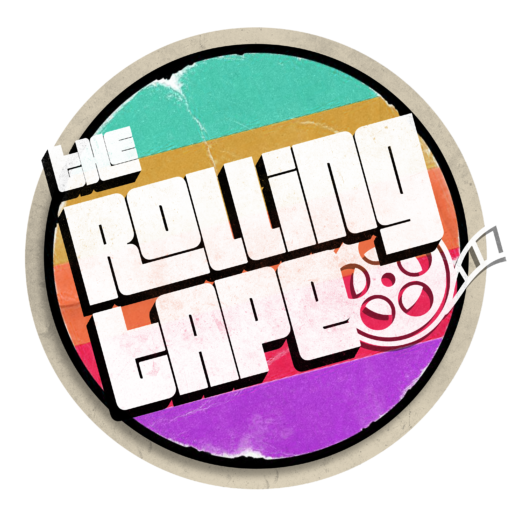I have said before that remakes and sequels are not my favorite industry trend, nor am I excited to see them continue into 2024. It is truly the most difficult task to recapture the magic of classics, so films like the 2023 readaptations of The Litte Mermaid, The Color Purple, and, of course, Wonka have me cautiously optimistic as I enter the theater. Timothée Chalamet takes on the daunting task of telling the story of Willy Wonka as a young man eager to begin his chocolate empire.
The Roald Dahl novel from 1964 has already been adapted twice, as we know, yielding three different “flavors” of the chocolatier himself. Gene Wilder’s Wonka has a warm heart, a mysterious back story, and a slightly mischievous way of teaching lessons to even more mischievous children. Johnny Depp’s Wonka is broken and rebellious, with more to learn from a child with nothing. Surprisingly, Chalamet finds inspiration more from the original Willy Wonka and the Chocolate Factory (1971) to embody an almost too exuberant father/big brother figure ready to share his creations with the world. While I doubt this latest adaptation will go down as the best, it certainly wasn’t as disastrous as originally expected.
A young Mr. Wonka arrives in Europe to earn his fortune at the “Galeries Gourmet” alongside other magnificent chocolatiers. With nothing but his dreams, magic, and chocolate, Wonka finds that following his dreams is much harder than he thought after he found himself up against the Chocolate Cartel and stuck working in a launderette alongside five other captives of a con woman, Mrs. Scrubitt (Olivia Colman). As a captive, Wonka meets a young girl named Noodle (Calah Lane), an orphan needing a little magic and a silver lining.
Very much in Roald Dahl fashion, the film is centered around love–not romantic, but familial. Willy and Noodle become the best of friends and each other’s new family. He takes Noodle under his wing, protects her, and promises her a better life. Despite setback after setback, Wonka’s new mission in life is to follow his dreams and make sure Noodle can follow hers as well. In this way, the film is set up very much like the original 1971 film. A child with nothing finding the power of wonder and imagination from the world’s greatest Chocolatier.
I found this film to have both the charm and excess of a Broadway musical. In fact, it is easily comparable to the stage adaptation of ‘Matilda,’ another Dahl story. Both were more playful than their respective film predecessors. Each character, including Wonka himself, was a caricature drawn from the original novel. It’s fun but not quite the original and almost unenjoyable–over the top, a little silly and extraordinarily redundant. I wasn’t as captivated by the story as in the original Wilder film. Nor was I curious or full of suspense from Burton’s adaptation.
Other than experiencing Chalamet’s debut vocals, the true fun of this film was watching so many big names leave their mark on the film. Colman was a delightful villain with the same charm as Pam Ferris’ Miss Trunchbull. Rowan Atkinson, Matt Lucas, Matthew Baynton, Paterson Joseph and even Keegan-Michael Key all gave rather silly performances that were just enough of a treat before becoming too much to handle. Even the seemingly grumpy Hugh Grant offered a pleasant, refined version of an Oompa Loompa. (I actually still don’t know how I feel about his “little” performance, but like everything else, it was palatable.)
Up against so many big-ticket names, Lane, as the orphan, Noodle, held her own in this grand story. Lane exuded confidence in her scenes with Chalamet and the supporting cast, never being overshadowed by more experienced performers. She gave the film heart, emotion, and, dare I say it, a little extra imagination. Next to Chalamet, who unlocked his own comedic charm, the two held tight to this narrative, toeing the line between parody and the family holiday event of the year.
I would like to say that the special effects and musical numbers wowed me, but they didn’t. I found a part of the original film’s charm, and possibly its 2005 predecessor, was the use of grand set design. For a moment, the room of chocolate, all of the imaginative elements, were real. Much of this film, except for some of the Wonka’s chocolate shop, relied too heavily on special effects. The world built around the young Willy Wonka felt too far away to be a tangible dream. Similarly, the songs, although sweet, were not as powerful, or even as catchy, as the musical numbers to come before.
It proves that sometimes, we cannot truly recreate the magic as films did before. It’s hard to recreate magic twice and even harder to recreate magic three times. No matter how hard we try not to, we will always compare Chalamet’s Wonka to Wilder just as we compared Depp to Wilder in 2005. The film tried everything it could, including callbacks and enlisting some of Britain’s greatest comedic talent to make a new, classic Willy Wonka tale. Unfortunately, despite its charm, the film isn’t quite as wonderful as the original and almost becomes too much of a parody or caricature to be its own incredible story.
Despite my bitter criticism, Wonka was not the worst adaptation we could have been given. In reality, it was pleasant and ignited those warm, loving feelings we crave over the holidays. Full of love and wonder, something this world may need right now.
Review Courtesy of Sara Ciplickas
Feature Image Credit to Warner Bros. via IMDb

Recent Comments